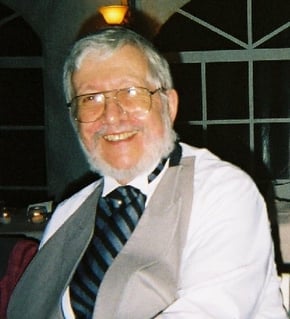This post is part one of an article series. Parts two and three can be found at Does Quantum Mechanics Speak to Catholic Teaching II: Quantum Mysteries Intersect Theology and Does Quantum Mechanics Speak to Catholic Teaching III: The Measurement Problem.
The one thing worse than a theology that attempts to draw connections between physics and God is a theology that believes it has no need of such connections, a theology that believes it can concoct the divine out of metaphysical whole cloth. —Philip Clayton, "Tracing the Lines" in Quantum Mechanics – Scientific Perspectives on Divine Action.*
Of the five posts most visited on my blog, Reflections of a Catholic Scientist, three deal with the intersection of quantum mechanics and religion. If then the relation between quantum mechanics and Catholic doctrine appears to fascinate people, why not explore this question: does quantum mechanics shed any light on theological principles and, if so, how?
What I will try to do first is to put forth some general considerations. Particular intersections of quantum mechanics with teachings of the Church are discussed in several posts on my blog (see the articles linked below and References**) and in Part II of this article. For those who want to plunge into the deep end of this swimming pool, please go to two volumes published by the Center for Theology and Natural Science (in collaboration with Vatican Observatory Publications). The books are collections of papers presented at conferences called by Pope St. John Paul II to explore "Scientific Perspectives on Divine Action": Quantum Mechanics, Quantum Cosmology.*
Quantum mechanics is weird!
Anyone who tells you they understand quantum mechanics is a liar." (Attributed – in one form or another – to Richard Feynman, Nobel Prize winner for work in quantum electrodynamics.)
Quantum mechanics is peculiar (in more ways than one)! The theory yields extremely accurate predictions and has not been proven incorrect in experiments done thus far. Nevertheless (as per Feynman's quote) it is not intelligible in terms of every-day experience. The mathematical formalism is elegant, and there is not a problem at the next stage: letting physical quantities stand in for the mathematical variables.
The difficulty is at a higher level: the interpretation of measurements in terms of qualitative models that correspond to our intuitive view of what the world is like. If you go to the Wikipedia article, "Interpretation of Quantum Mechanics," you'll find 15 different interpretations (and there are subdivisions amongst many of these). Some of these interpretations bear directly on matters of theology; others, not so much.
How quantum mechanics intersects theology
Let me bring up one very general question about quantum physics that bears on theology. Bernard d'Espagnat has suggested that quantum physics manifests a "veiled reality." If that is so, can this theory then tell us what God is like, or would that also be "veiled" or hidden? Or, if God is not totally comprehensible to us – only partially intelligible – does that mean God and quantum mechanics are parallel mysteries? Read the linked article and decide; but whichever way you decide, it is clear that quantum mechanics does inform theology in this matter.
There are more specific stances that scientists and theologians take on how quantum mechanics might be relevant to matters of faith. Philip Clayton (Tracing the Lines*) has laid out five such positions (the names added in parentheses are those of physicists/philosophers/theologians who, according to Clayton, have taken the position in question):
- No reasons can be given, other than purely subjective ones, for any theological position (Cushing).
- Serious theological positions can be given in some cases, but quantum physics is too unclear... to give rise to helpful theological conjectures (Polkinghorne).
- Some constructive theology can be written... even if our conjectures remain highly speculative (Chiao, Clayton, Russell, Stoeger, Tracy).
- ...Strong theological conclusions can be reached on the basis of modern physics (Dombs)... Intelligent Design theorists (Behe, Dembski) argue that evolution requires a prior intention and an in-built design on God's part.
- The convergence between the conclusions [of quantum physics] and the teachings of [Eastern] religious traditions is so great that they should no longer be regarded as separate realms... but as one integrated whole [Bohm, Capra].
My own position is between 3 and 4.
In Part II of this article, I'll consider how three aspects of quantum theory—Superposition, Entanglement/Non-locality, and the Measurement Problem—might bear on theological matters.
References
*The linked reference to CTNS publications will show five icons for the books summarizing the Conference publications. Click on the upper left (pink) "Quantum Mechanics" icon and a column will appear on the right hand listing each author's paper; click on the author's name and a summary of his/her paper will appear. Do similarly with the "Quantum Cosmology" icon.
**In addition to those given in the post and in the right-hand column, please see these posts on quantum mechanics (links to web sites explaining quantum mechanics are given in the posts): Philosophic Issues in Cosmology 3: Mathematical Metaphysics--Quantum mechanical models for early stages of the universe, God, Symmetry and Beauty I: The Standard Model and the Higgs Boson, and God, Symmetry and Beauty in Science II: A Personal Perspective.
Read Also:
Does Quantum Mechanics Speak to Catholic Teaching II: Quantum Mysteries Intersect Theology
Does Quantum Mechanics Speak to Catholic Teaching III: The Measurement Problem

